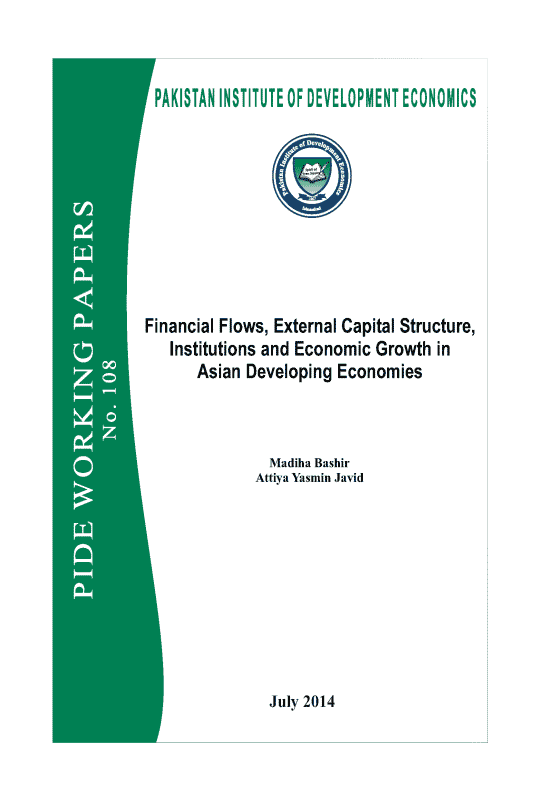Financial Flows, External Capital Structure, Institutions and Economic Growth in Asian Developing Economies
Present study is conducted to measure the impact of financial integration on economic growth in Asian developing economies using panel data of twelve Asian countries from 1984-2012. In first part of analysis, study finds for the direction of causality between financial development and economic growth and based on empirical finding suggests that it is financial development that follows growth. In second part of analysis, study examined the growth effect of four different kind of financial integration variables. The effect of financial integration differed considerably depending on the type of financial integration variable employed. Foreign direct investment and equity assets and Foreign direct investment and equity liabilities negatively affects growth while debt assets and debt liabilities positively affects growth in developing Asia. Moreover, the impact of two dimensions of public institutions i.e. corruption and financial development on composition of external liability structure is also examined. Study arrives at conclusion that financial integration does not contribute in growth of developing Asia as much as it is expected. Moreover, countries should develop and strengthen its financial system and reduce corruption to attract FDI in order to enjoy more growth episodes and to avoid currency crisis as well.




